
Where We Be
| If anyone tries to tell you Nariz del Diablo is "hair raising" don't believe them -- but it does make for a pleasant outing |
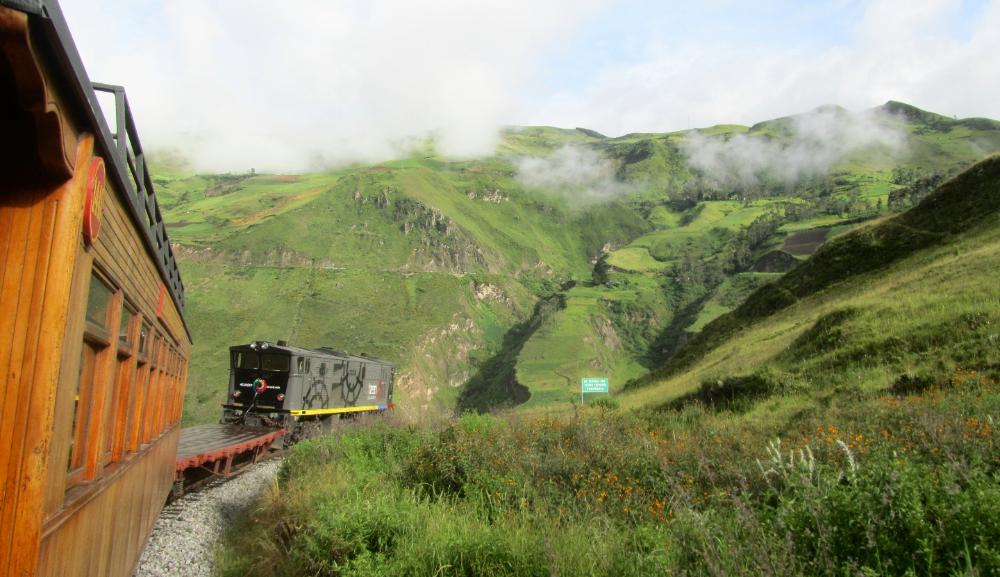
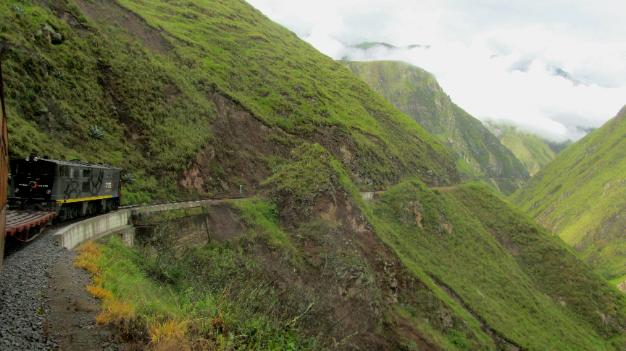
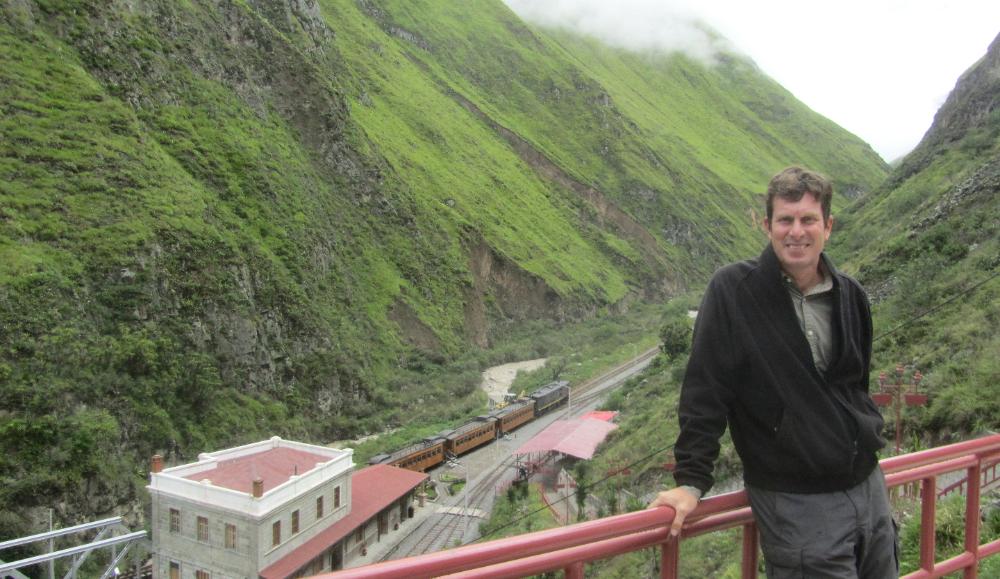
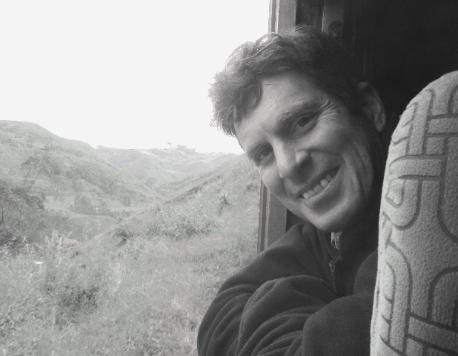
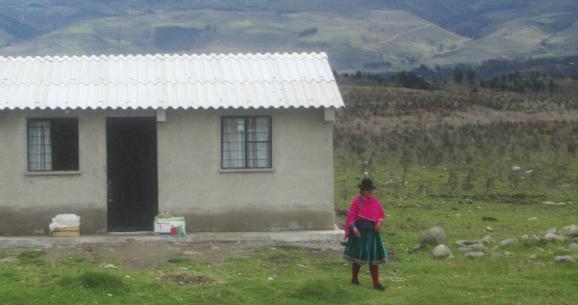
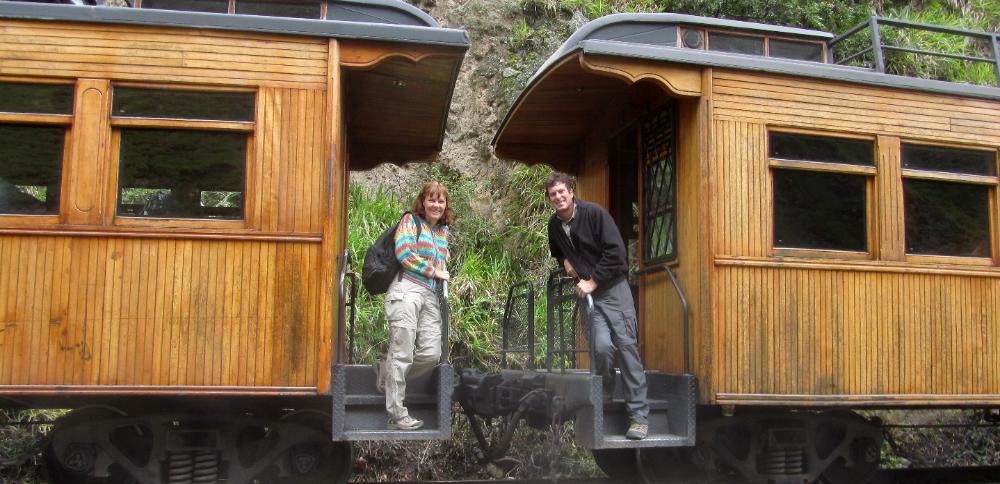
| Some 2500 workers died during the construction of the Nariz del Diablo rail line in the late 1800s. Many workers felt the Devil's Nose was cursed. |
| Nariz del Diablo, Ecuador |
| The 4-hour bus ride from Alausi to Baños was also quite beautiful, with views of mist-enshrouded volcanoes and hillsides covered with a tapestry of fields |
| Women in country settings are particularly likely to wear traditional garb |
| Robin gave it a whirl when asked to dance |
| We particularly enjoyed watching this small boy participate in the dancing |
| Dancers perform traditional dances at Sibambe Station. They receive a small percentage of each person's train fare. |
| We climbed a steep set of stairs to a small museum highlighting the challenges of the Nariz del Diablo railroad construction |
| Derailments were common in the early days of the Nariz del Diablo |
| Directly behind the two conductors is the Devil's Nose itself -- the biggest engineering challenge of the difficult route along the Chanchan River. The track drops 2000 feet between Alausi and Sibambe Stations, which are just 10 km apart. Two switchbacks help overcome the steep grade. |
| Next morning, we boarded the Nariz del Diablo train at 8 am for our 45-minute journey to Sibambe Station just beyond the Devil's Nose |
| The train's wooden interior and cushioned seats were comfortable, and we liked the fact we could open the windows to take photos. We would have liked it even better if we could have climbed the stairs to sit on the roof of the train, but two fatalities made that a thing of the past. |
| We enjoyed the rugged scenery and the almost complete lack of development along the railroad route |
| Looking up a particularly beautiful valley during the train ride |
| We had 45 minutes at Sibambe Station |
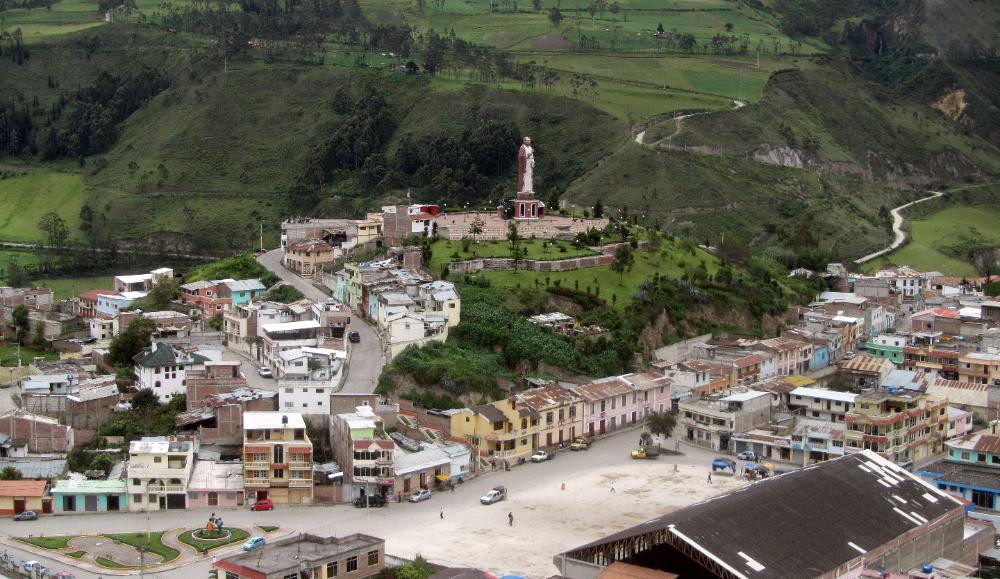
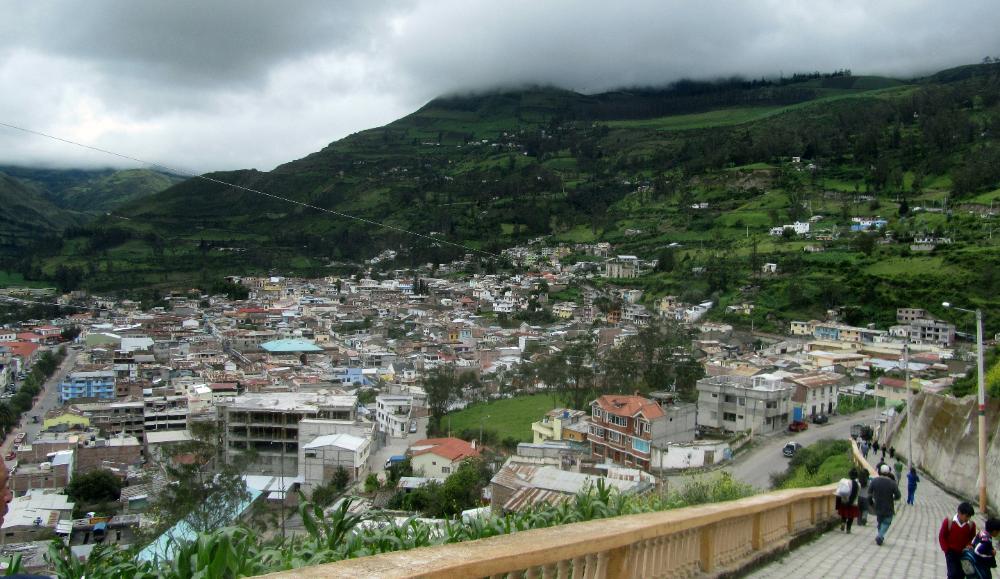
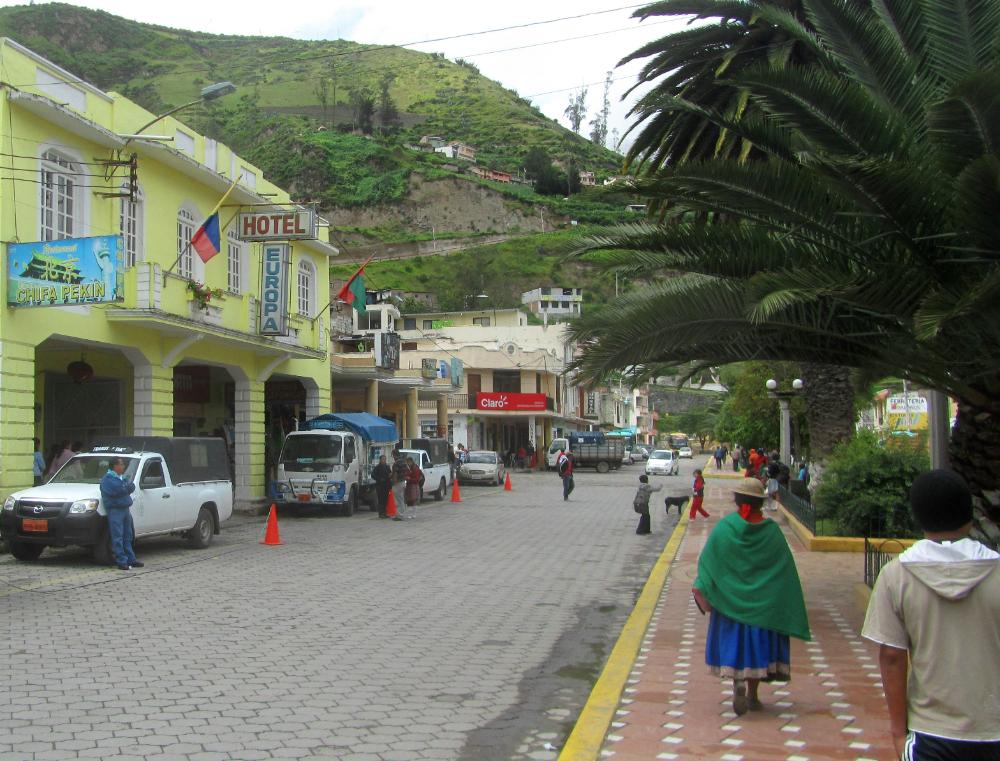
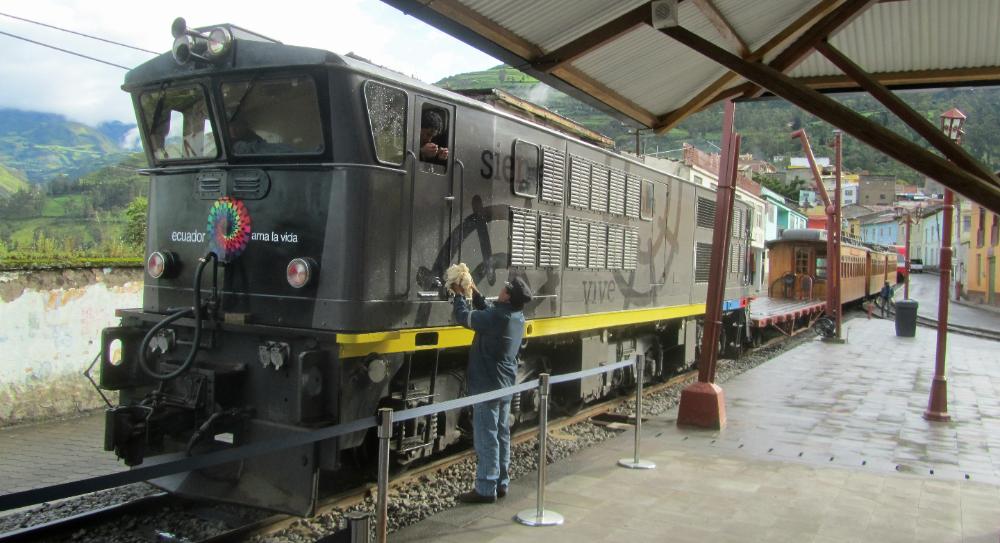
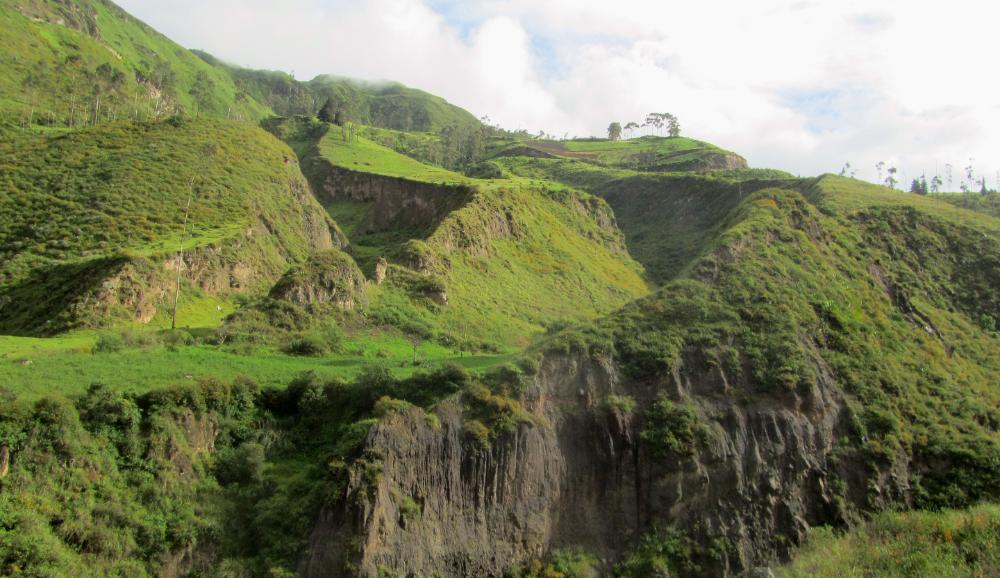
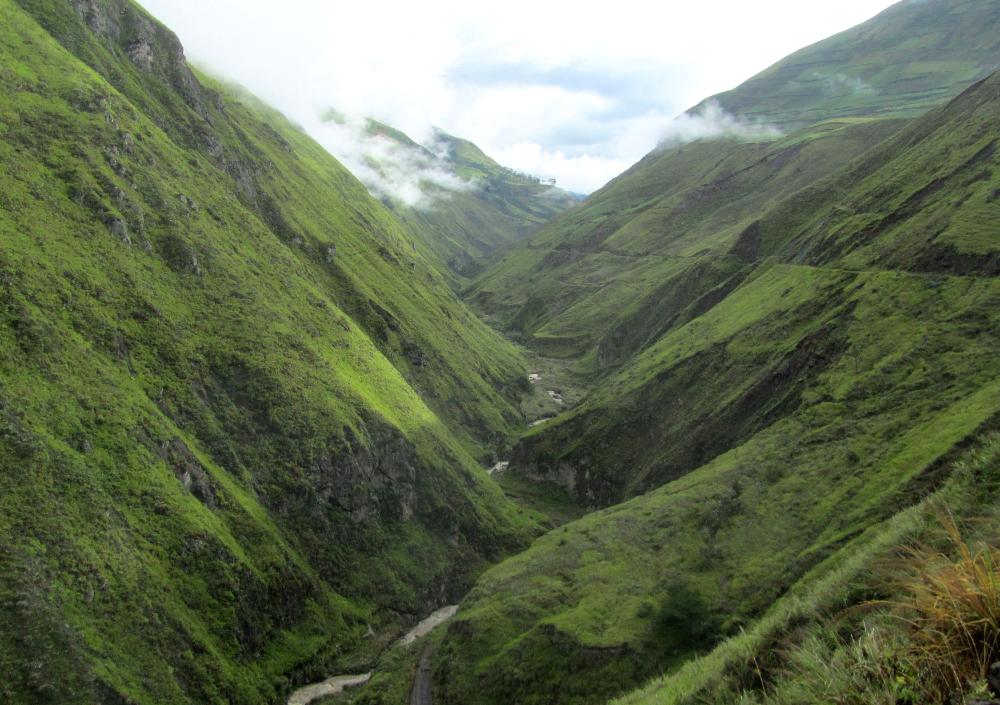
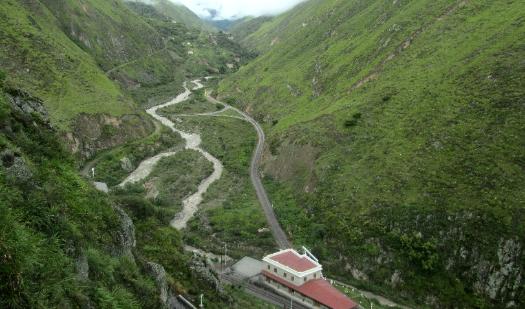
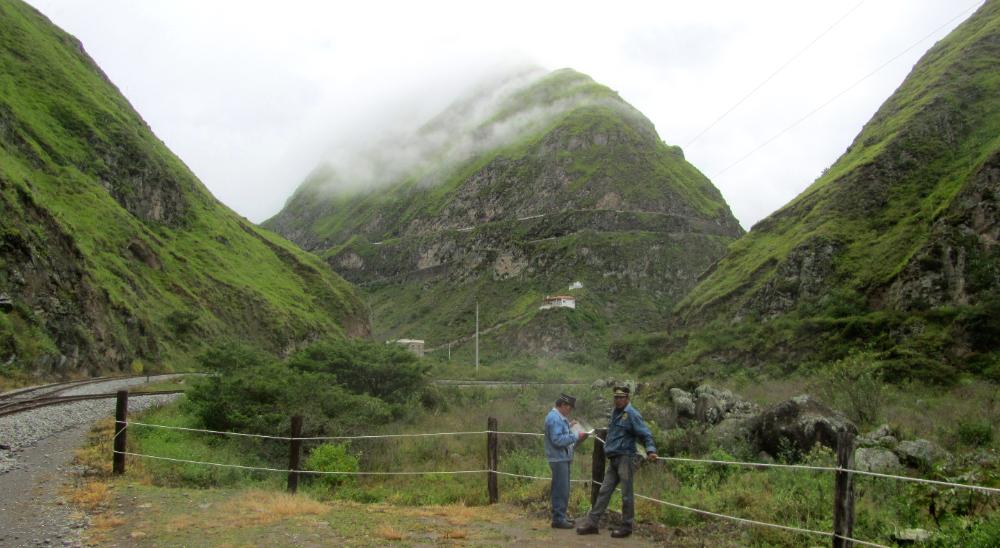
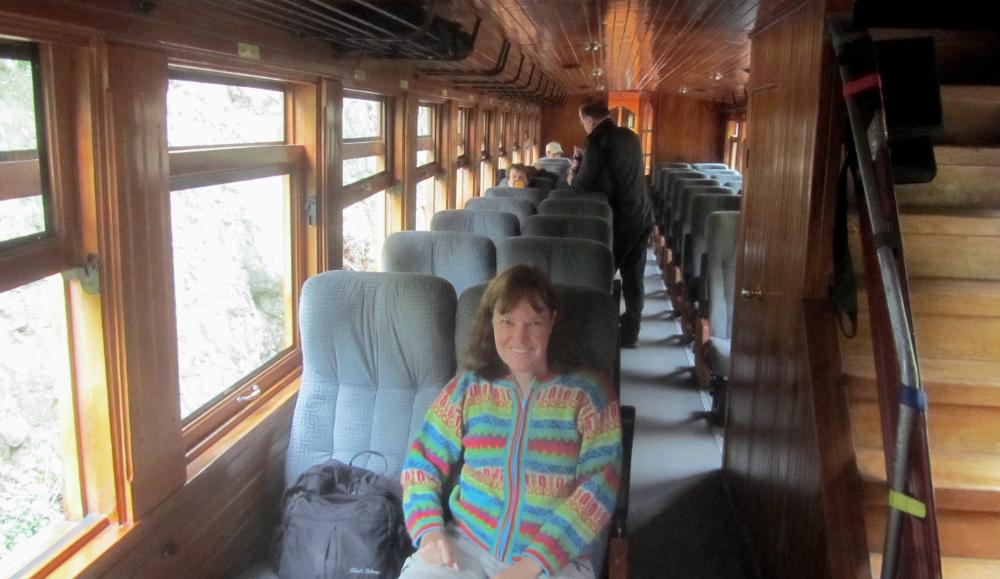
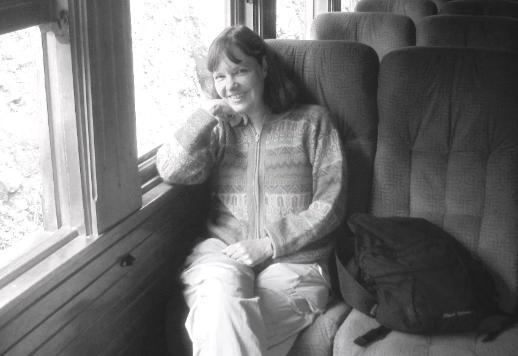
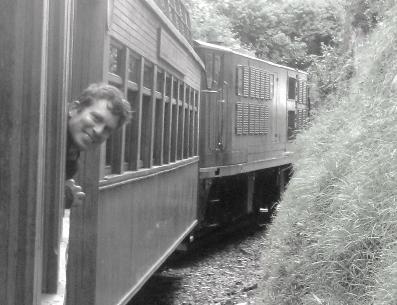
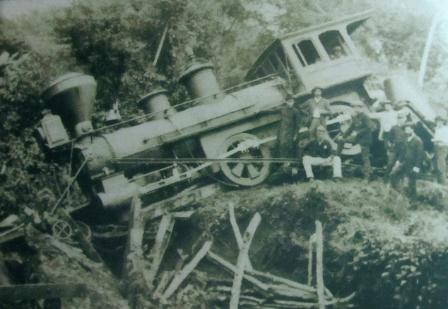
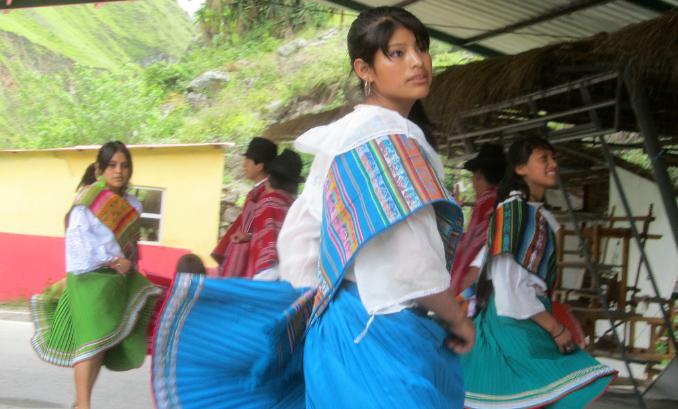
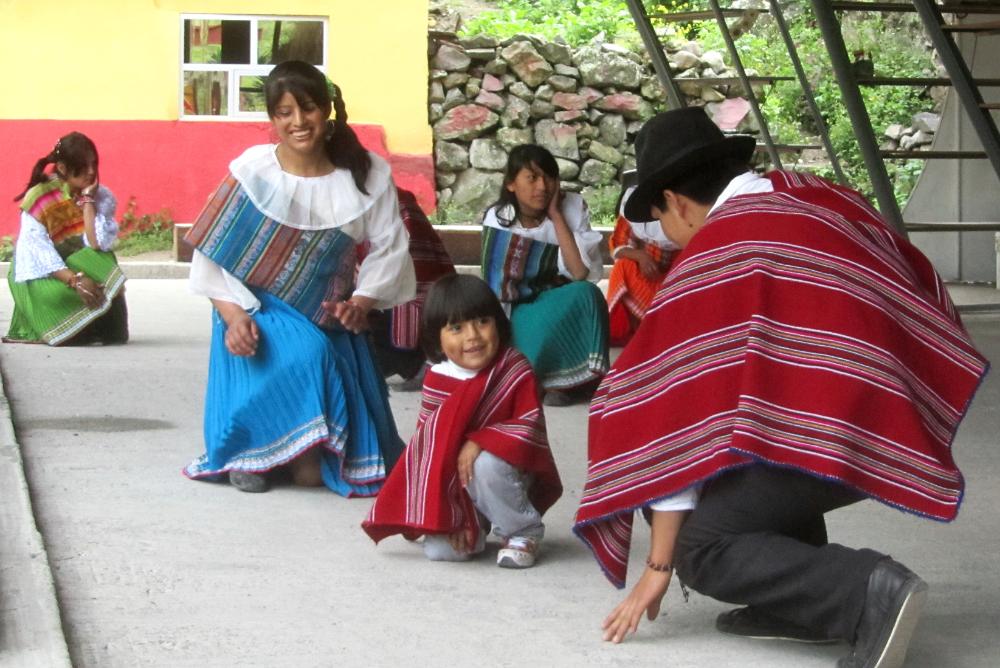
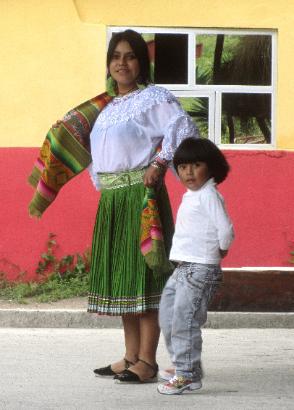
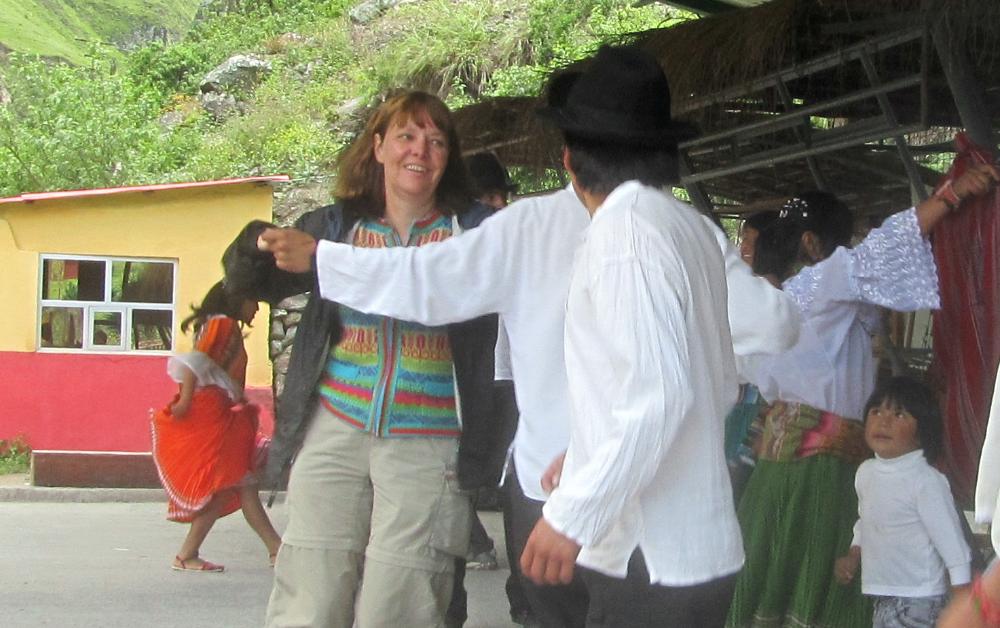
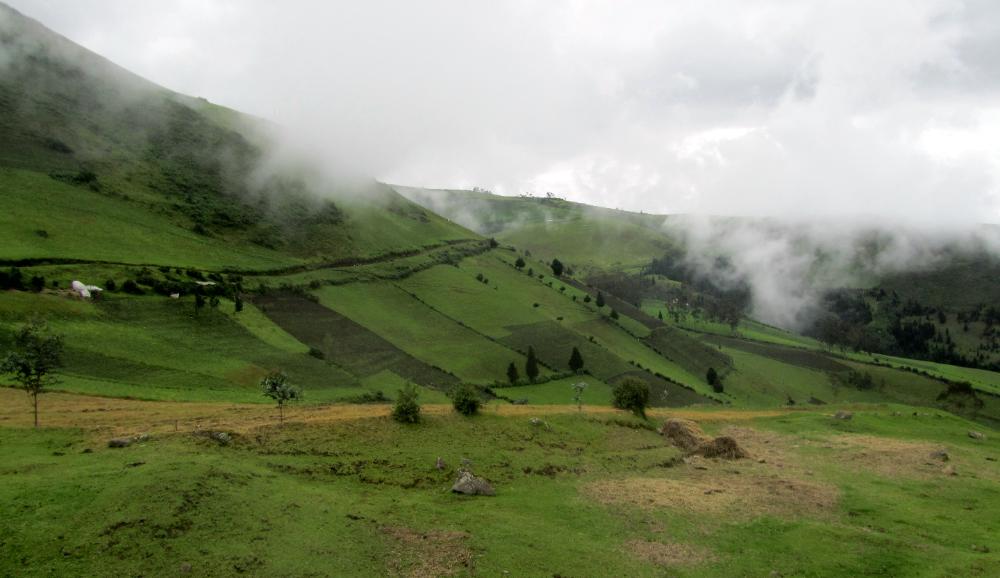
| We arrived by bus to Alausi, a mountain town in the central highlands of Ecuador. During the bus ride from Cuenca, we had to stop to clear a landslide blocking the Pan American Highway. The conductor yelled "Todos los hombres!" ("All the men!") -- "Get off the bus and help clear the road!" |
| The bus dropped us off along the Pan American Highway and we walked down this paved path to Alausi |
| A woman in traditional garb walks ahead of us down one of Alausi's main streets. To the left is the hotel we stayed at, Hotel Europa (~$40 per night). |
| This is Sibambe Station as seen from above -- the far point of our rail journey |
Nariz del Diablo (the "Devil's Nose") is a historic
train ride in the central highlands of Ecuador. It
wasn’t as hair-raising as we had been led to
believe – in fact the journey itself was rather
tame – but the views were beautiful. We would
not do it for the excitement (especially since
you can no longer ride on the roof due to two
fatalities), but we did enjoy it and felt it was
worth the ~$40 per person. Alausi is the starting
and ending point. The train used to depart from
Riobamba, but now it just covers the steepest
section of track from Alausi to Sibambe Station
just beyond the Devil's Nose. This only takes 45
minutes in each direction, with a 45-minute stop
in the middle. We left at 8 am and were back by
10:30 am. The journey on the way there is
downhill, not uphill as we expected. We sat
inside wooden railroad cars with cushioned
seats and were able to raise the windows to
take pictures. The right-hand side is better for
its lush mountain scenery and roaring rivers.
train ride in the central highlands of Ecuador. It
wasn’t as hair-raising as we had been led to
believe – in fact the journey itself was rather
tame – but the views were beautiful. We would
not do it for the excitement (especially since
you can no longer ride on the roof due to two
fatalities), but we did enjoy it and felt it was
worth the ~$40 per person. Alausi is the starting
and ending point. The train used to depart from
Riobamba, but now it just covers the steepest
section of track from Alausi to Sibambe Station
just beyond the Devil's Nose. This only takes 45
minutes in each direction, with a 45-minute stop
in the middle. We left at 8 am and were back by
10:30 am. The journey on the way there is
downhill, not uphill as we expected. We sat
inside wooden railroad cars with cushioned
seats and were able to raise the windows to
take pictures. The right-hand side is better for
its lush mountain scenery and roaring rivers.
| Off we go amidst the green mountains and misty weather of the Ecuadorian central highlands |
| Head out the window and happy |